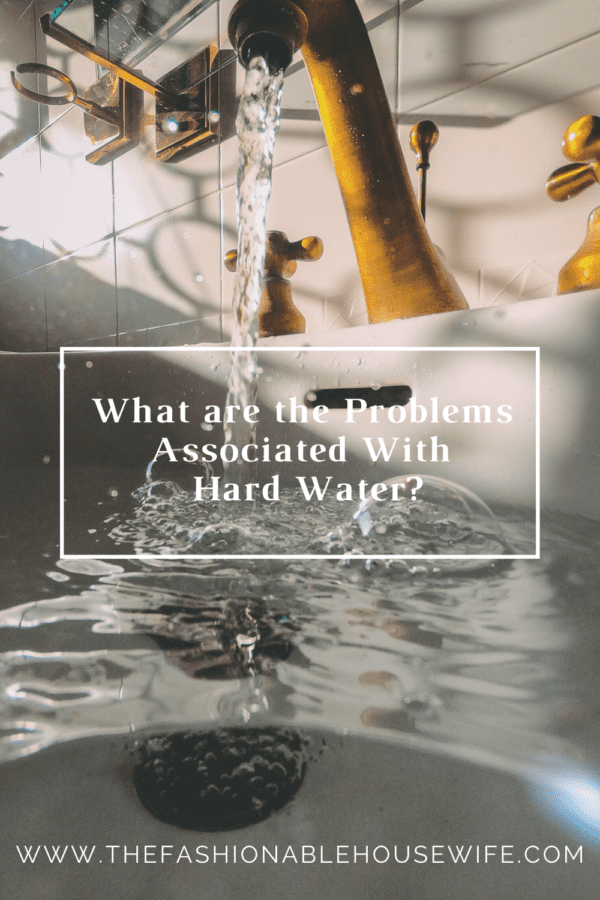
If you have recently moved into a new home, then you may be excited for the future. However, things can go awry very quickly. For example, there may be an issue with the tap water in your home.
Hard water can wreak havoc on a home, and can quickly overwhelm a new homeowner that already has many obstacles to deal with. If you want things to return to normal and want to enjoy your new home without any encumbrances, then you need to nip the problem in the bud.
In this article, we will discuss all of the issues that are associated with hard water.
What is hard water?
When the water in your home has a very high mineral content, then it is known as hard water. Hard water is formed when water percolates through sulfates, bicarbonates, carbonates, and magnesium and calcium deposits that are found in gypsum, chalk, or limestone.
The good news is that you can wash with hard water, and can also safely drink it in most cases. The bad news is that hard water can lead to serious economical issues down the road. It can also lead to some inconveniences and even a few embarrassing moments in due time.
What are the problems caused by hard water?
Hard water can lead to clogged pipes and corrosion of said pipes. It may cause your kitchen and bathroom to have a strange and strong odor. If you decide to drink your tap water, then you may notice that it has a strong and unpleasant chemical or metallic taste as well.
You may notice that it has become increasingly harder to clean your bathtub. You may also see dull hair and may have issues while you take showers. Moreover, many people with hard water problems will notice that they have stains on their dishes.
Even your laundry will begin to fade if you do not rectify your hard water issue as soon as possible. As can be seen, hard water is no laughing matter and should be investigated by a licensed and bonded plumber in your area in the briefest delay.
What causes hard water?
As water travels from rain to subterranean aquifers, it will be exposed to elevated levels of magnesium and calcium. The end result is hard water. As such, hard water is the organic byproduct of the hydrologic cycle.
Water will evaporate from the sea, condense to form clouds, and then come back down to earth in the form of snow or rain. Water is actually a universal solvent that arrives on the earth as mildly acidic and soft.
However, once it reaches the ground it will percolate into aquifers. Groundwater will pass through multiple layers of gypsum and limestone. The problem with limestone and gypsum is that they contain large amounts of magnesium and calcium.
As such, the water will absorb large amounts of magnesium and calcium as it filters through the rocks.
What constitutes ideal hard water treatment?
There are many different techniques that you can employ in order to tackle your hard water problem. However, what will determine which technique or method to use will depend entirely on the severity of the issue.
For instance, if the water in your home is only slightly hard, then you may not even notice some of the symptoms or side effects. If the issue is minor at the moment, then you can use a hard water cleaning product to take care of the problem.
Vinegar can also be used in order to treat mild hard water problems. However, if the issue is more serious, then we would recommend a descaler. A descaler will prevent hard water from damaging your plumbing system.
Safety First
Your pipes and appliances will be drastically impacted by the deleterious effects of hard water. When their efficiency is impacted, both you and your appliances will need to work harder in order to keep your home safe and clean.
The good news is that water softening can be implemented to counteract the malevolent effects of hard water. Water softeners release a resin that takes advantage of the molecular mechanisms of ion exchanges in order to eliminate magnesium, calcium, and order minerals.
Once these substances have been neutralized from your water supply, you can return to enjoying soft water. Soft water is designed to work with your detergents and soaps, unlike hard water.
You will notice a drastic improvement within minutes. Your faucets, dishes, hair, and laundry will be cleaner once you have eliminated your hard water problem, and you will save hundreds of dollars that would have gone towards repairing damages to your pipes and appliances.
If you suspect that you have a hard water problem in your home, then you should call a licensed and bonded plumber in your area in order to accurately diagnose the problem and the extent of the issue.



